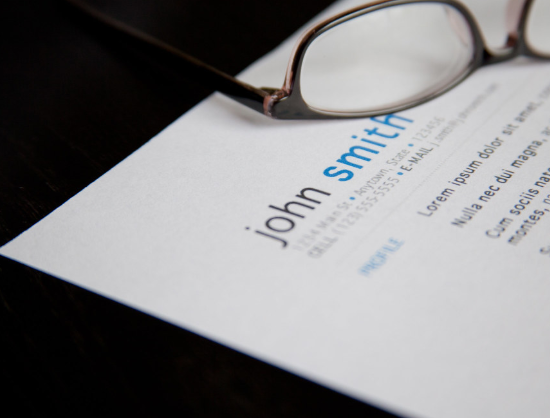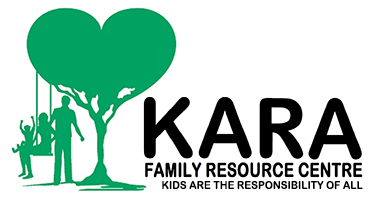
As parents, we need income to sustain our growing families. We always dream of a better income in order to afford a better quality of life for our kids, and so we are driven to apply for better jobs. To get one, it all starts with our resume.
It’s a difficult task to write a successful resume and land that interview. I’ve had my fair share of sending one in and never hearing back. Luckily, I’ve also had my fair share of landing an interview, and they say that getting the interview is halfway to getting the job! So for the resume part, that’s half the work, it’s something to be taken seriously!
And it isn’t just the resume, as you’ll see, but it’s all the communication that takes place before an interview that you need to be prepared for. Let’s get started!
Job Search
I think there are two kinds of job searches. Searching for jobs that you have the education and/or experience for, and jobs that you wish you did – in other words, you are passionate about!
These two categories sometimes interlace and that’s the job that’s golden. The job that you are likely to be a good candidate for but also the job that you are excited about and driven to learn more to obtain it. Essentially, you have some of the qualifications but not all of them, so your skills and passion for learning come into play. You can always apply to any one of these three potential jobs, but you will need to alter your resume accordingly. Let’s move on!
Email Subject Line
I never write the email first, I always tackle the resume first. However, to understand how the employer first sees you and your potential skills, let’s look at it from their perspective.
The first thing they see will be the email subject line. I kind of equate this to how you dress for an interview. The first thing the potential employer will see is you. Before you even say hello to one another, they see your wardrobe and how you present yourself, if you are on time and if you come prepared.
Likewise, the email subject line is how professional you appear before you show off your skills and knowledge. The email subject line should be professional and to the point. You certainly don’t want to waste his or her time by making them guess what the email is about. If the job description gives details about how to reference the job, like a job number, use that. If not, still try to convey exactly what the point of your email is. Good examples are below.
Application for Job No. 12345 – Marnie Christensen
Application for Sales Associate – Marnie Christensen
Potential employers are busy folks, and if your email subject line is confusing or has a spelling error, they may not even open the email. The perfect subject line will entice them to open your email.
Email Content
The next piece the potential employer will see is the email itself. With this, it’s best to still stay direct and to the point, but you should elaborate a little as to why you are the ideal candidate. Essentially, as with the email subject line, you want to encourage the employer to take the next step and open your cover letter/resume. I equate the email content to your interview introduction. They now see you are prepared and ready for an interview, and with the proper introduction, you show them you are approachable, courteous, experienced and professional.
I start my email off by directing it to who it was intended for, such as “Dear Mr. Norman.”
If there was no contact listed in the job description, I address it as such, “Dear Hiring Manager.”
I specify as to which position I am interested in and why I believe I would be the ideal candidate. I refer to specific experience or knowledge that I posses or years in which I have worked in similar roles. The detail I use correlates to a very brief summary of what I’ve incorporated into my cover letter. I don’t go beyond two or three sentences as you don’t want them to search for information that should be readily available.
Lastly, I express that I would like to be invited for an interview to discuss my qualifications further. This gives them the opening and call to action to contact you. Be as precise as possible with your contact information, giving them at least an email address and phone number. You can list a couple of numbers to reach you but it’s best to only provide your cellphone to circumvent the risk of a family member answering a home phone.
Cover Letter
The cover letter is probably the most time consuming part of the process, but I think it’s the most telling part, so it’s well worth the time. It needs to be tailored to the specific position you are applying for and have relevant examples of your qualifications. I normally include five short paragraphs within.
Within the first paragraph I detail how many years of experience or education I have that is relevant, and three responsibilities directly from the job description that I have experience with or think that I have the skills to complete exceptionally well.
Within the three body paragraphs, I reference the three responsibilities I took directly from the job description and provide relevant details on my experience or education pertaining to them. I detail not only how I completed the responsibilities but how I excelled and adapted to the positions I had previously. If I have examples of how I managed projects, aided senior staff, or developed new and innovative ways of completing tasks, I certainly elaborate on those as they are great ways to impress your potential employer. A word to the wise, these three examples (or more or less, depending on your cover letter) detailed within your cover letter are likely to be the main topics of conversation during the real interview, so ensure you are prepared to discuss them at length in a sit-down atmosphere.
Lastly, the final paragraph should incorporate a very short summary of your cover letter, along with why the position speaks to you and what experience you want to build on, if applicable. End it with your appreciation of the potential employer’s time and consideration, and contact details. Your sincere thanks speaks volumes and shows the employer you are respectful and considerate.
Resume
The main event is your resume. It may well be that your potential employer skipped right over your cover letter to get the pertinent details fast if they are in a rush or received a surplus of applications. This means that you need to have a great summary of all your skills, experience, education, work experience, accomplishments, certificates, or any volunteer work right in one easy-to-read package.
I like to do this with tables within Word. My name is in a large font, centered at the top of the page. I organize my key experience within a couple of bullets or a very brief paragraph at the top, under my name, under the header “Professional Profile Highlights.” On the left side of this key experience, I’ve placed my contact details.
I also detail my most recent or relevant education and key words along the left side of my resume, under my contact details. These pop-out action words allow my reader to get a very fast impression of what I have to offer. The headers I use for these sections are called “Education” and “Professional Skills.”
To the right of my education and professional skills, I detail my “Relevant Work Experience.” I don’t list all of my work experience as not all of it pertains to the job I’m applying for. I use the experience that is most relevant as the employer may not have time to go through my entire history.
Lastly, I add a section for “Professional Projects and Accomplishments” and detail within any relevant projects I’ve completed on my own, any team projects I’ve been part of, any volunteer work, or any certificates that may be of interest.
I’ve moved away from listing my references within my resume as it’s not the norm now. Also, it gives the potential employer a reason to contact you prior to contacting anyone on your list (and gives you time to prepare your references!).
And that should do it!
Sending the Application
Before you send your application, ensure you are honest with your qualifications. There is no harm in embellishing your talents a bit but never be untruthful. It will be obvious in the interview setting and potentially hurt your chances of future employment. Also, ensure you proofread all of the details, from the subject line to the last line in your resume! If your application is one of hundreds, a spelling or grammatical error could be the one thing that moves your resume from the interview pile to the discard pile.
Measurable Success
All in all, those are the tips and tricks I use to apply for a job! As I mentioned, not all of my applications have been successful but I’ve been particularly lucky with the call backs I do get! I do hope these tips help you land that dream job and excel your family! Leave a note if you’d like to share some of your tips or stories – I’d love to hear them!
